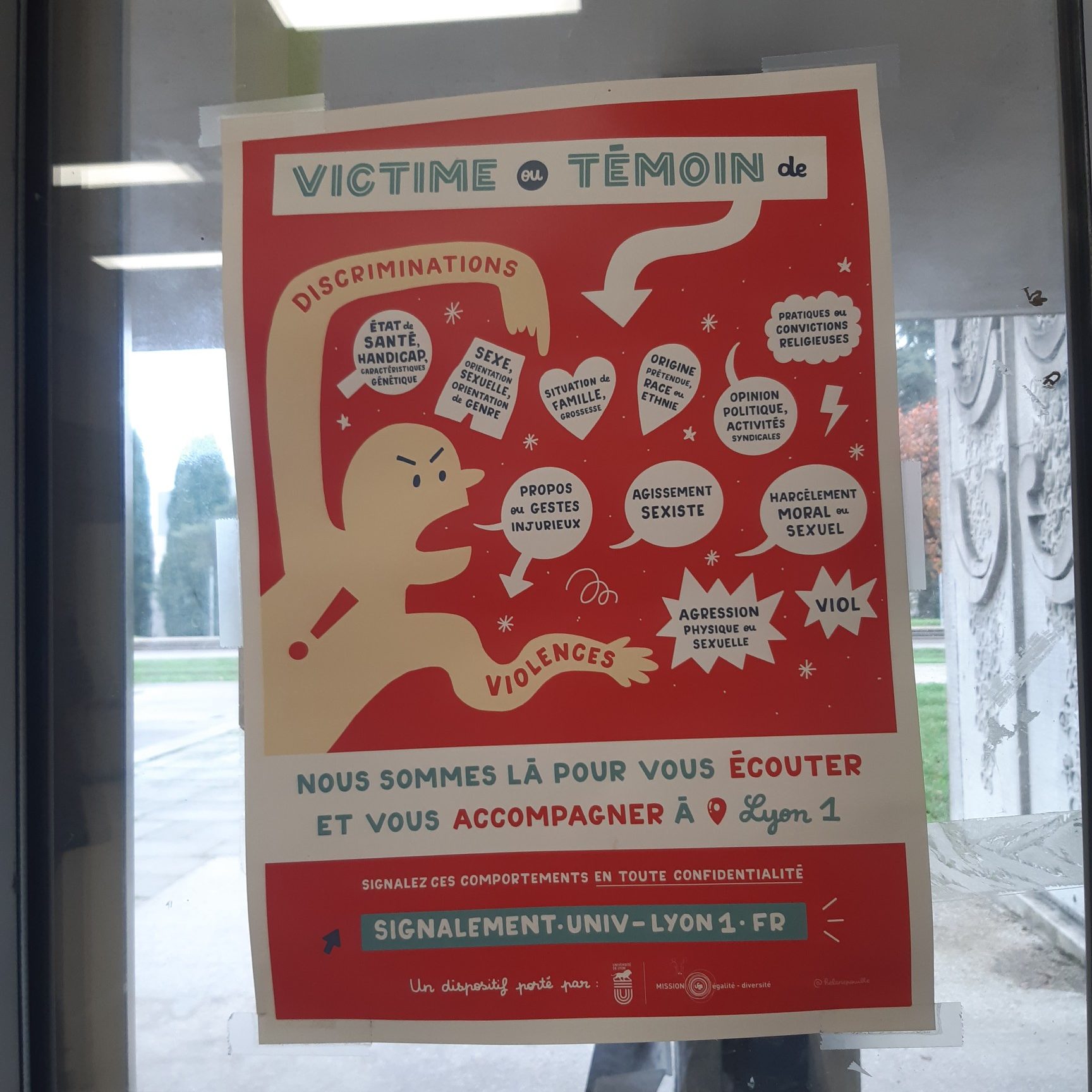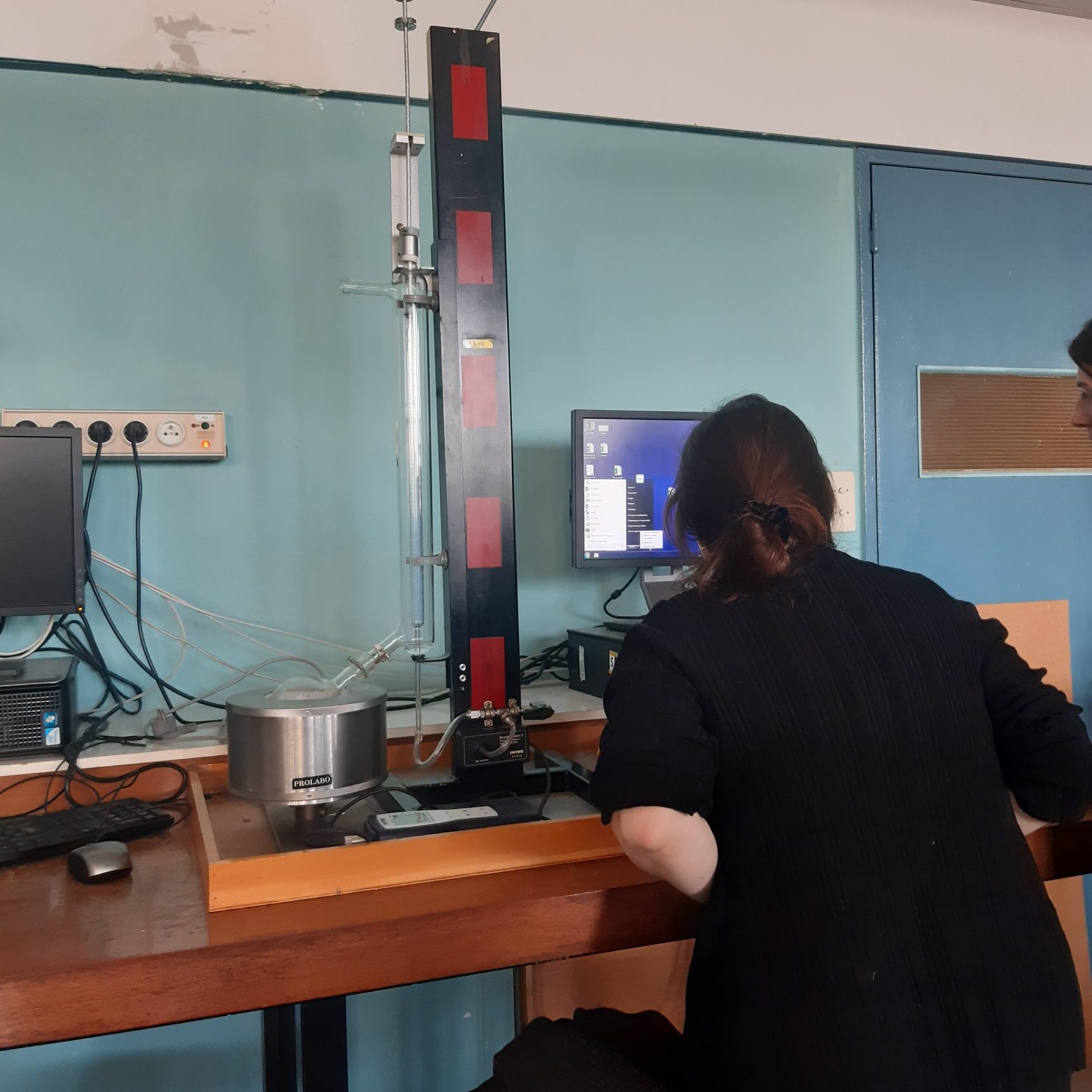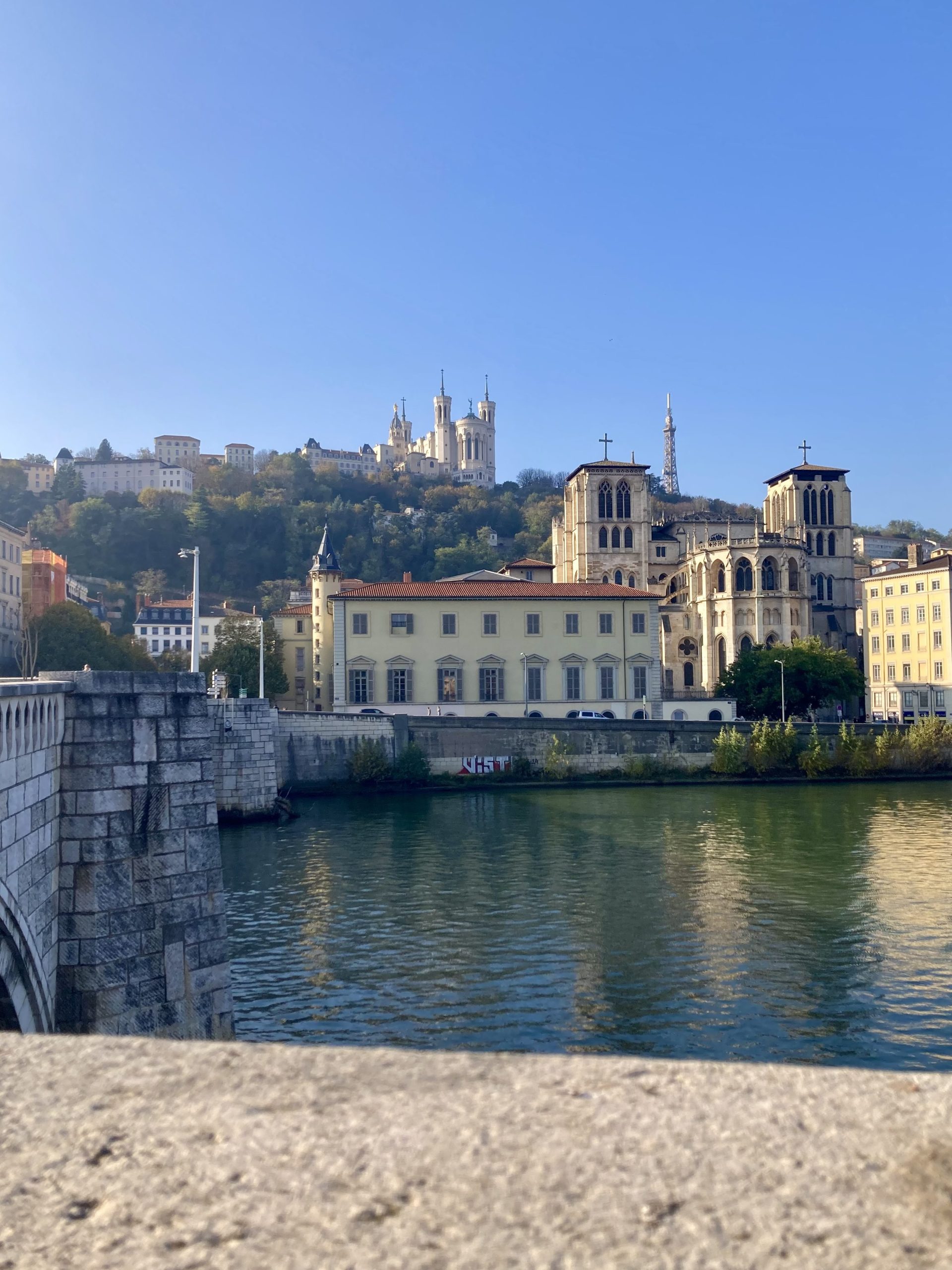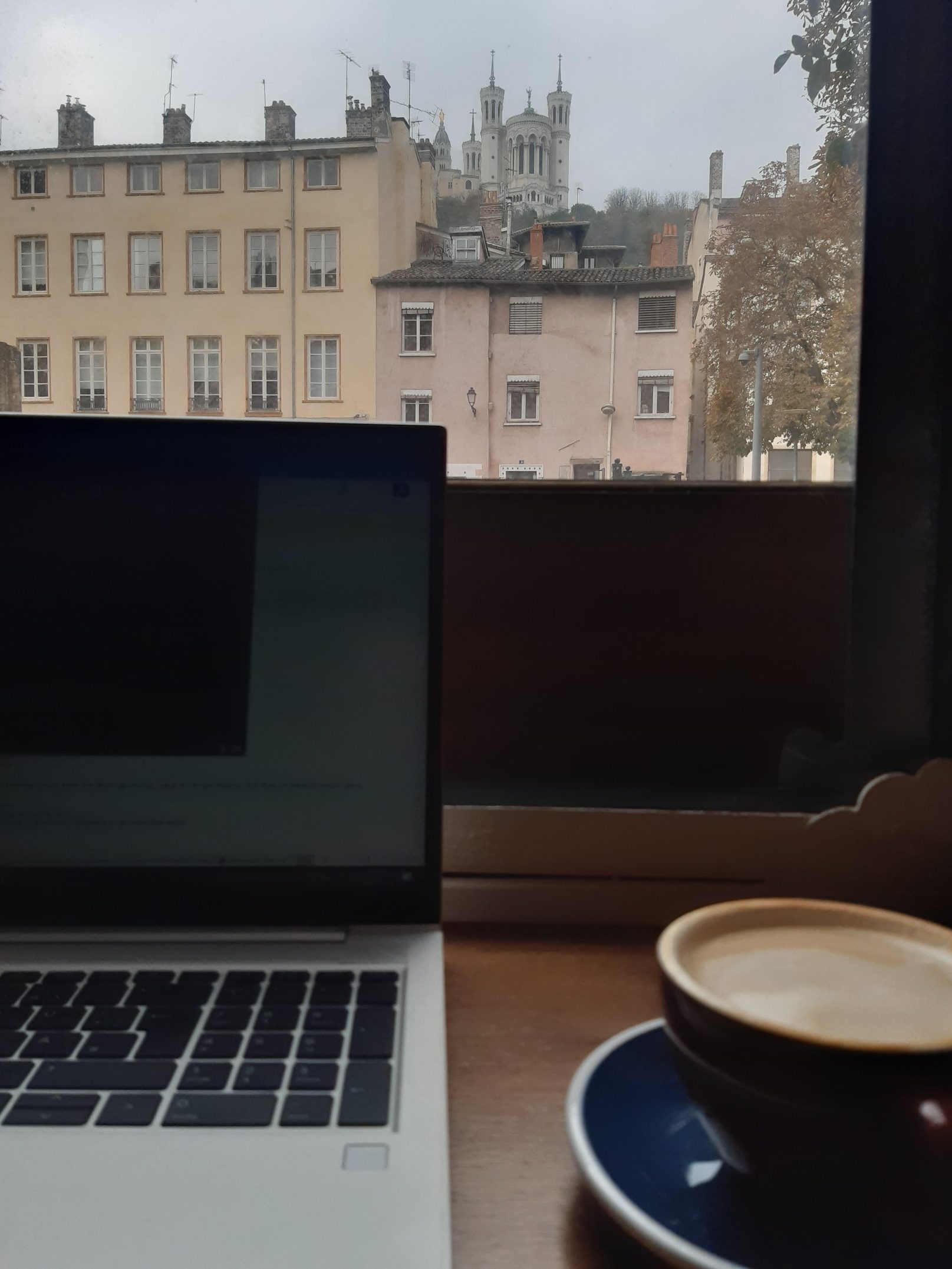Out and about with Arqus: New ideas for equity and internationalisation
|
13 May 2025|
13 May 2025The first Arqus Staff Week on Inclusion and Diversity took place at the University of Lyon 1 in November 2024. Organised by the Arqus Inclusion and Diversity Hub, it offered staff from the partner universities the opportunity to get new ideas and discuss strategies to promote equity.
In this article, Leipzig participants Laura Schlechte from the Institute of Special and Inclusive Education, Johanna Degering from the International Centre and Lisa Roland from the Office for Equality, Diversity and Family Affairs describe the highlights of the week.
The week started out with a free Monday morning that we used to explore the city a bit. Then the Staff Week officially opened with a welcome session. The Arqus organisation team and the diversity representatives from the University of Claude Bernard Lyon 1 introduced themselves and gave us an initial overview of the activities planned for the week. The opening was followed by a guided tour of the city, which was dedicated to the topic of queerness in Lyon and Europe. This gave us the opportunity to get to know both the city and the other participants.
The next day, we took a deep dive into the main topics planned for the Staff Week. The mornings were filled with plenary lectures and panel discussions on gender equality, digital accessibility, ways to promote participation in education, and inclusive teaching and learning. Participants presented individual projects and comprehensive strategies in place at the Arqus Universities and then discussed these together. This showed us just how different national strategies for dealing with diversity and accessibility can be – including the definitions of specific diversity categories and approaches.
In Germany, for example, diversity management often focuses on the “big six”, that is, the six categories of discrimination covered by the General Act on Equal Treatment (AGG): race or ethnic origin, gender, religion or belief, disability, age and sexual identity. At higher education institutions, issues such as parenting or caring for relatives and social background also have to be tackled, as these influence the success that individuals have in their studies and academic career. Leipzig University pursues this type of intersectional approach, which takes into account the complexity of individual experiences and attempts to holistically dismantle mechanisms of discrimination. Ireland’s National Access Plan, for example, expands this approach to include other categories such as experiences with the care system (e.g. in children’s homes or foster families) and domestic violence.
The next thing on the agenda was a tour of the laboratories at Lyon 1 to find out how accessible they actually are. We quickly identified numerous obstacles such as tables that were too high, sockets that were difficult to reach and noise pollution. In discussions afterwards, it became clear that many of these problems could be solved with simple measures like height-adjustable desks, headphones, and regular breaks, as well as more accessible operating systems on the lab computers.
Another central focus of the week was the use of digital technologies for accessibility purposes. A number of impressive projects were presented that show how technology can make everyday life easier. The EVELITY app (Lyon 1) and the OPALE project (Lyon 2) deserve special mention. Both offer innovative solutions for easier access at these universities in the form of wayfinding apps with indoor and outdoor navigation. Another highlight was Maynooth University’s self-directed learning platform MILO, which students can use to work on their study skills and enhance their well-being.
Taking part in the Staff Week was a great chance for us to make valuable contacts and strengthen our partnerships with other European universities. Exchanging best practices and learning about innovative projects that promote diversity provided us with new ideas that we would like to incorporate into our approaches and replicate in the daily work carried out by our teams. These new networks will provide support in the long term and help us to both gain insight into diversity and inclusion work in the European context and stay up to date with international developments.
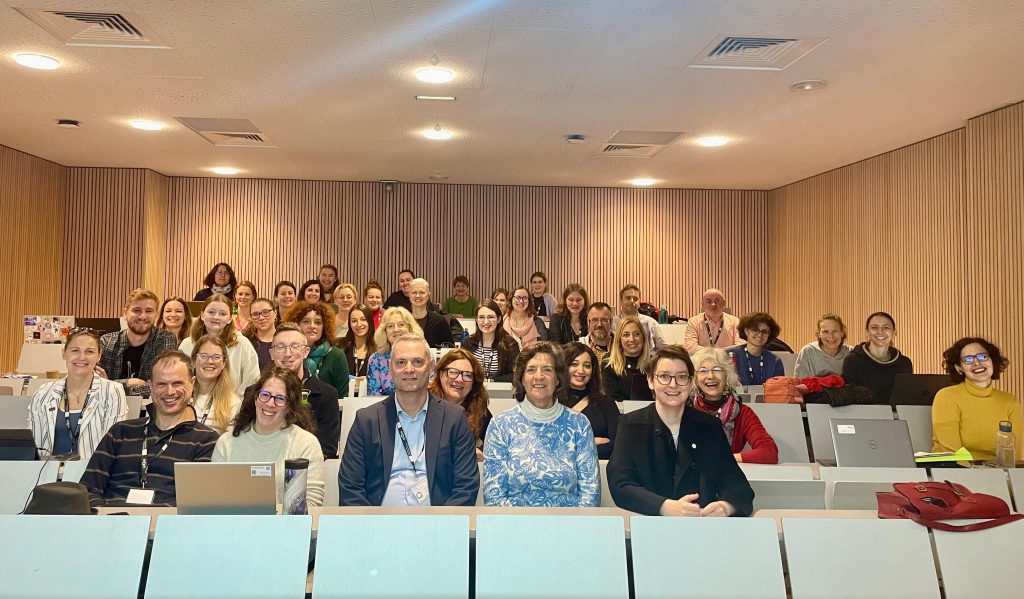
We would like to thank the Arqus Inclusion and Diversity Hub and the team at Lyon 1 for organising such a productive Staff Week. And we can only recommend that all academic and professional staff take the opportunity to participate in an upcoming Arqus Staff Week.
